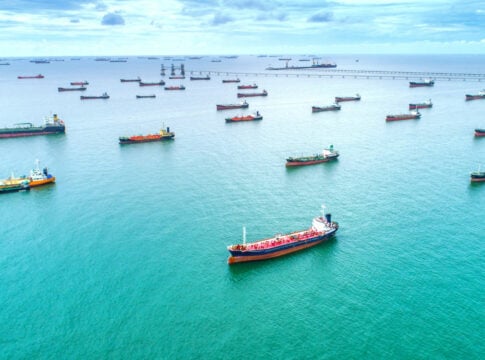The contribution of Greek-owned ocean-going shipping to both the global and domestic economy is highlighted by data from a study conducted by McKinsey & Company, which was presented by Apostolos Zampelas (Partner, Leader of Shipping Practice, McKinsey) at the 9th Shipping Conference organized by “Naftemporiki.”
The study refers to the Greek “paradox,” according to which Greece—a country that accounts for less than 0.3% of global GDP—controls approximately 20% of the world’s ocean-going shipping, highlighting its dominant role in the international maritime market. This disproportionate influence underscores the strategic importance of shipping for Greece, with the sector affecting one in every fifteen jobs in the domestic private sector. Essentially, ocean-going shipping is a vital pillar of the Greek economy, comparable to the automotive industry in Germany or the watchmaking industry in Switzerland.
The McKinsey & Company study also highlights a series of interventions that could significantly contribute not only to maintaining but also to further strengthening Greece’s position in global shipping. Specifically, an additional annual impact of 3–4 billion dollars could be achieved, primarily through expanding the base of Greek seafarers, developing shipyards, and investing in maritime technology.
As emphasized in the study, this potential can become a reality through strategic positioning within an evolving global trade landscape, as well as by promoting partnerships and alliances to create economies of scale and drive change and innovation.
Greece’s Position in the Global Shipping Industry
As highlighted in the study, the European Union controls approximately 32% of the world’s shipping capacity, while only 10%–20% of global trade flows pass through European ports. Of this vast capacity, nearly two-thirds is under Greek ownership or control, positioning Greece as a global leader in maritime freight transportation.
The Greek fleet numbers over 5,000 vessels, making it one of the largest and most significant in the world. Over 26% of Europe’s seaborne crude oil imports are transported by Greek-owned tankers, which account for around 20% of global tanker capacity. At the same time, 21% of the global capacity of Liquefied Natural Gas (LNG) carriers is also Greek-owned, serving a substantial portion of Europe’s energy needs.
Greek shipping controls nearly 20% of global capacity in ocean-going shipping, showcasing the sector’s expertise and strategic foresight. The total value of Greek shipping assets is estimated between 140-180 billion, with annual gross revenues ranging between 40-50 billion dollars.
On a global scale, there are about 60,000 ocean-going vessels over 1,000 gross tonnage (GT), with more than 11,000 companies active in deep-sea shipping. The average asset value per vessel exceeds 1.1-1.3 million, while the total annual revenue of the sector is estimated between 400-450 billion euros.
Greek Shipping: A Pillar of the National Economy
Greek shipping continues to be one of the main engines of the Greek economy, leaving a strong mark both internationally and domestically. According to the latest data, Greek-owned vessels account for a significant share of global “ton-miles”—a measure that combines cargo weight with transportation distance. Specifically:
- 16% of global tanker ton-miles are carried out by Greek ships.
- 16% of bulk carrier ton-miles are also covered by Greek shipowners.
- 27% of global LNG (Liquefied Natural Gas) ton-miles are handled by Greek vessels.
This presence is not only impressive on a global scale but also crucial for the Greek economy. Notably, about 15% of employment linked to shipping stems from non-shipping-related activities, underscoring the wide-ranging indirect benefits the sector brings.
Employment and Payroll Impact
- 10% of total private-sector payroll in Greece is directly or indirectly connected to shipping.
- 6% of total private-sector employment comes from the shipping industry.
Shipping jobs offer salaries three times higher than the Greek national average. Specifically:
- The average annual salary for onshore shipping positions is around 55,000 euros.
- For seafarers, it rises to approximately 65,000, making shipping one of the most lucrative sectors in the Greek labor market.
Jobs Created by the Sector
Direct employment:
- 20,000 jobs in ship management
- 17,000 Greek seafarers working on Greek-owned vessels
- 9,000 jobs in the broader maritime cluster (including agencies, legal and technical services, chartering, etc.)
In summary, Greek shipping is not only a world leader in tonnage and operational reach but also a strategic national asset, fueling the economy with high-paying jobs, investments, and extensive indirect benefits across other industries.
Social Contribution
The study also highlights the important charity work of Greek shipowners. According to the presented data, Greek shipowners contribute substantial funds—estimated at over 400–500 million dollars annually—to social solidarity initiatives.
A significant portion of this giving is directed toward:
- Healthcare, 100–120 million allocated annually
- Education, 50–60 million per year
These contributions underscore the sector’s broader commitment to Greek society, beyond its economic footprint, reinforcing the role of Greek shipping not only as a financial catalyst but also as a pillar of social responsibility.















